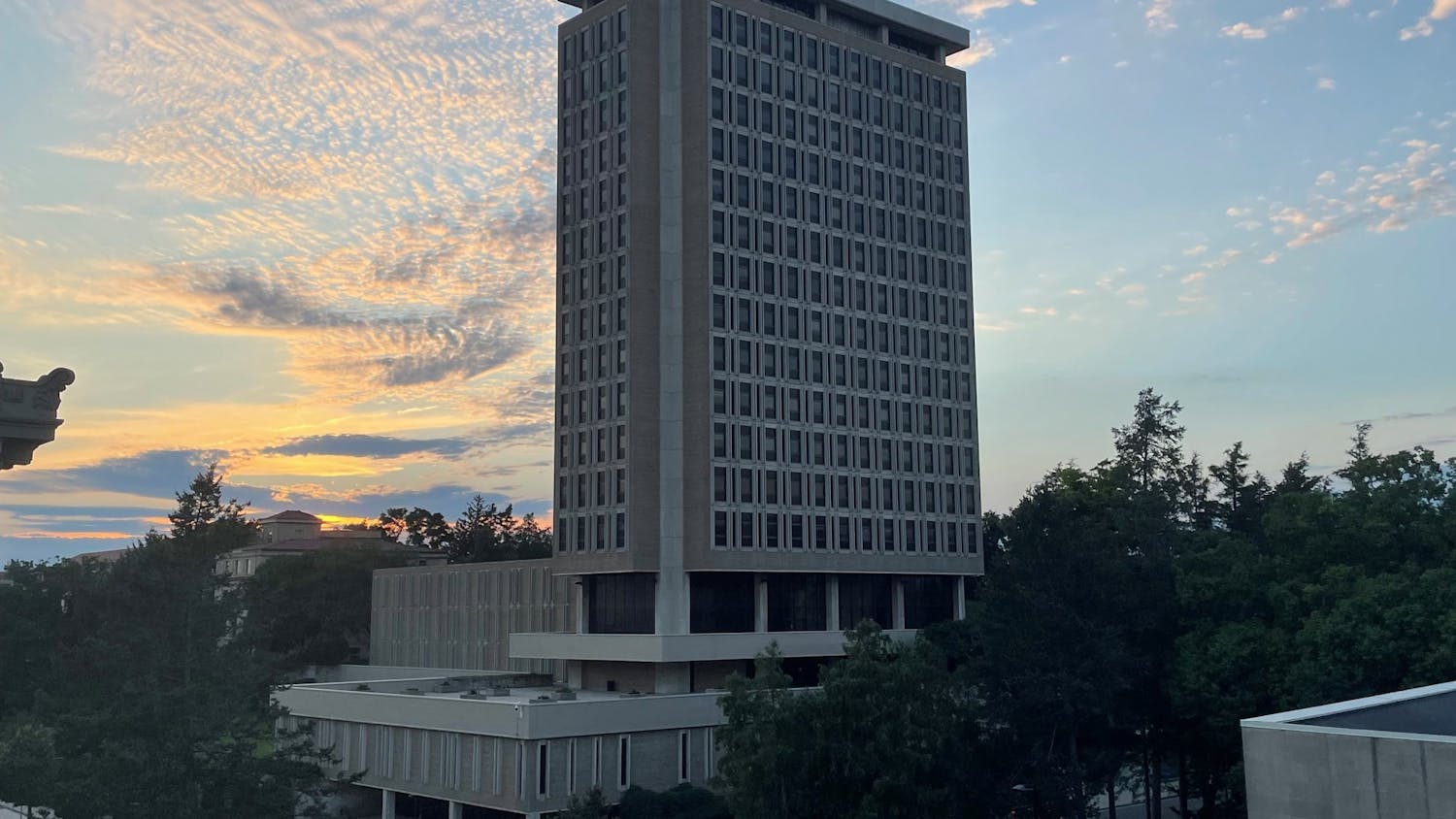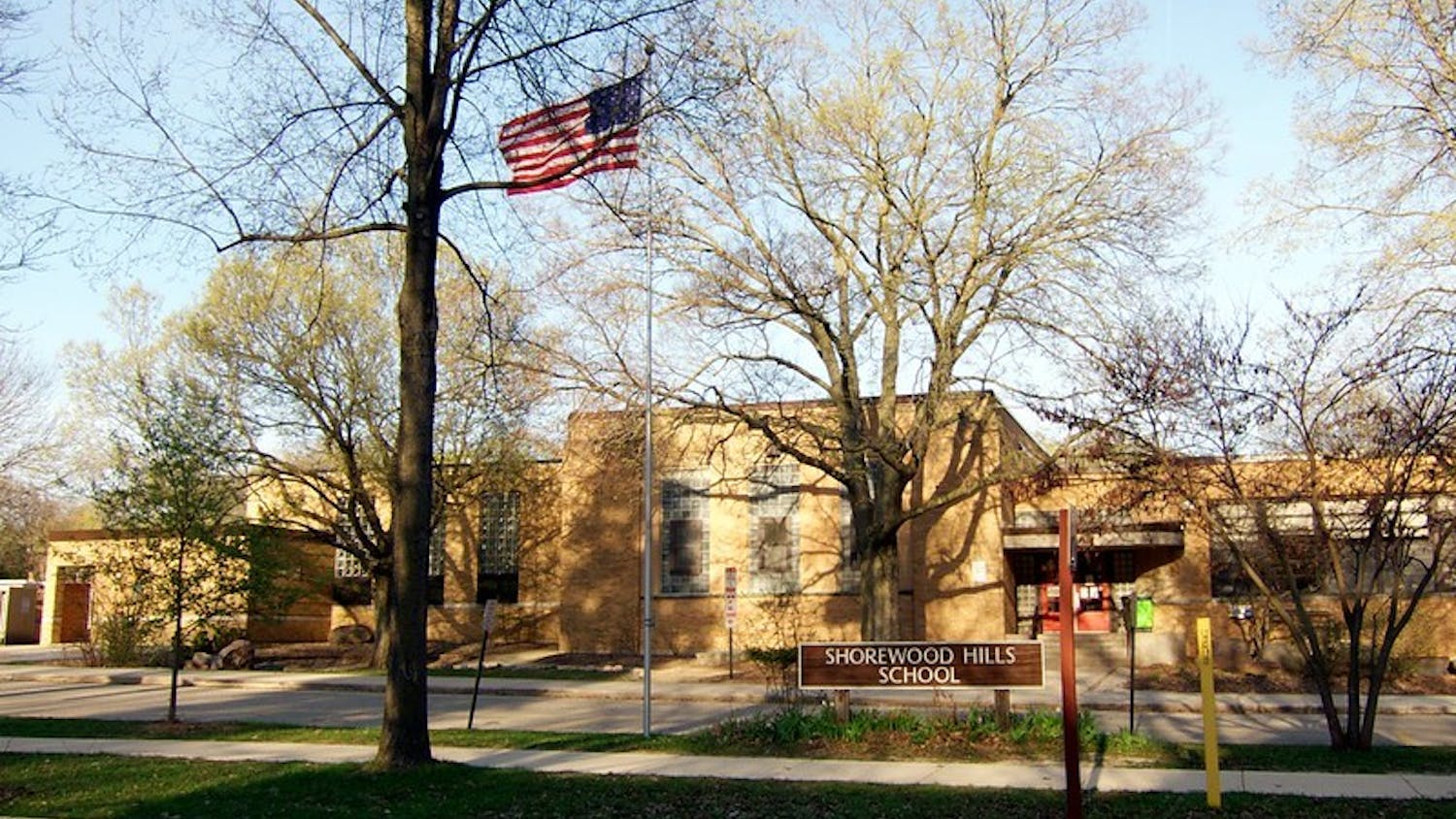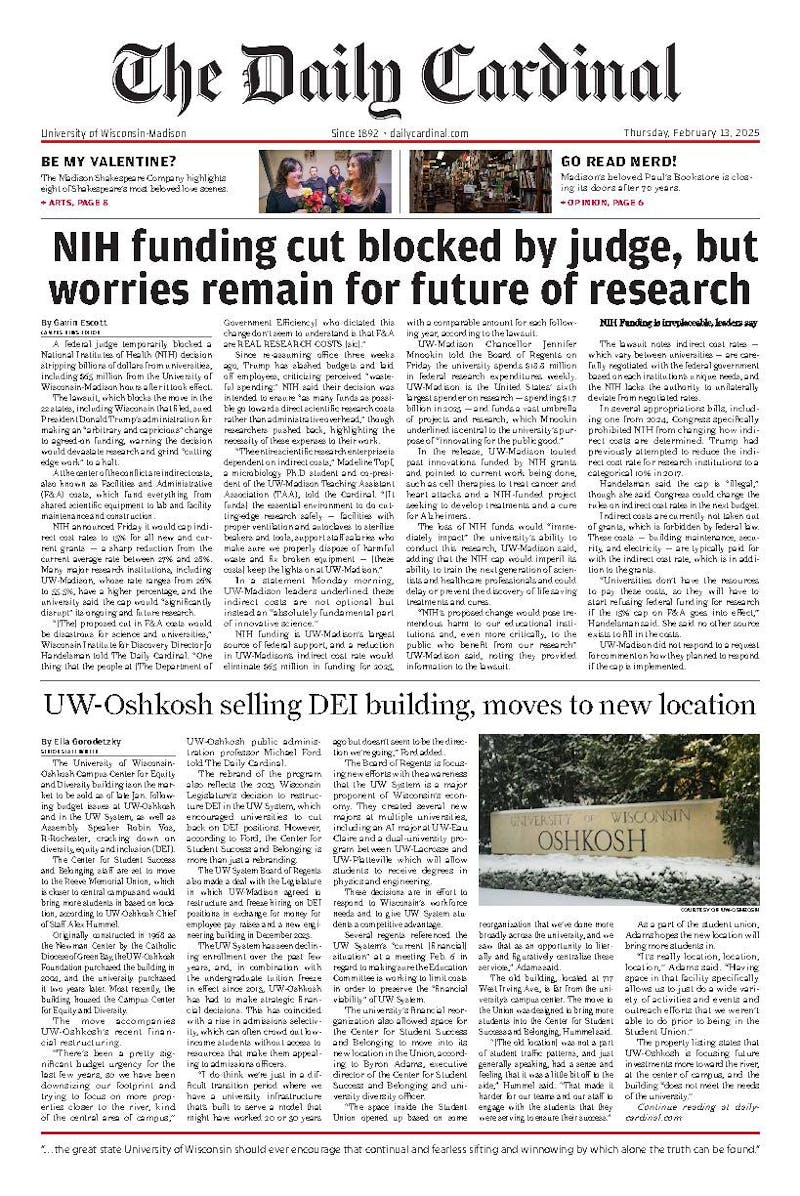The Latinx Heritage Month Planning Committee presented an interactive exhibit Monday on the history of Latinx activism at the University of Wisconsin-Madison.
The Center for Campus History discussed the history of acts of Latinx resistance on campus at Monday’s exhibit. Latinx student organization MEChA, which stands for Movimiento Estudiantil Chicano de Aztlán (Chicano Student Movement of Aztlán, the home of the Aztec people indigenous to Mexico), was invited to speak on the importance of community, safe spaces and intersectional self-knowledge.
The exhibition highlighted Latinx engagement and victories at UW-Madison over the past century and contended that these are a testament to the community’s “continued push for recognition, space and resources.”
Looking at the history of marginalized people must be central when discussing the history of UW-Madison, said Taylor Bailey, assistant director of the Center for Campus History.
“UW-Madison is a predominantly white institution. It was not founded or created with people of color in mind,” Bailey said. “Existing as a Latinx person in early years was actually an active resistance, forging a way in a space that is not only not welcoming to you but also not built for you to succeed.”
The exhibit highlighted the sense of exclusion and ostracization that the Latinx community felt “when it came to their studies, student organization and spaces of belonging.”
Latinx student organizations were integral in bringing Chican@ and Latin@ Studies programs to UW-Madison in 1976.
Bailey said this shows the importance of other forms of resistance, namely “meeting with administrators, making committees [and] making your voice heard through public policy.”
Although Latinx student organizations worked to effect change, they were also spaces where students found community, Bailey said. “We can think about claiming space as resistance.”
MEChA is a nationwide Latinx student organization focused on interacting with and giving back to the Latinx community. It was officially established at UW-Madison in 1970.
MEChA student leaders said having safe spaces on campus for Latinx students is key to their community's well being.
“Something that's very important about having the MEChA house is that it gives us that autonomous space where we can really just have our community without really having to worry about anything else,” said MEChA board member Josiah Gomez. “It's very much a communal space. There's not many spaces like the MEChA House on campus.”
“It's also just a safe space for people that are not white,” added Karla Martinez, another MEChA board member.
MEChA’s previous house was demolished in 2011 to construct the Hamel Music Center. Then, in 2015, UW-Madison’s campus master plan outlined possible demolition of the current house for development projects.
Construction planned through 2027 does not require this, but UW-Madison stated in an update that the MEChA house could be affected or removed in possible future phases of development.
Board member Marisol Dashnaw said MEChA provides an important space for students to express themselves and their culture.
“There’s student artwork everywhere up on the walls representing who we are, our values, what we believe in and how we feel about our experiences,” Dashnaw said. “That's something that really differentiates the MEChA house from any other space on campus.”
MEChA promotes Latinx resistance to oppression by educating members about their cultural and political identity while providing them with academic and social support.
“[MEChA] promotes knowledge of the self: where you're from, where you've been situated, with an emphasis on intersectionality,” Gomez said. “The big thing within our chapter is understanding that we also have indigenous roots and not denying that to ourselves.”
By being a platform for Latinx students’ self-expression and understanding, MEChA helps UW-Madison’s Latinx community navigate their complex sense of self, according to Gomez.
“Having Mexican parents but being born here, there's always going to be that passion for Mexican and American cultures coming together,” Martinez said. “I think it's about embracing that clash, that ultimately you're not going to be fully Mexican or fully American. But I do still want to keep my Mexican culture.”
The fruits of Latinx sociopolitical engagement at UW-Madison “are just a few examples that showcase the community’s continued push for recognition, space and resources,” the exhibition reads.
Editor's note: This story previously attributed the exhibit to the Center for Campus History, which was only involved in a support role for the Latinx Cultural Center. The headline was updated to reflect this at 1:05pm on Oct. 12.






